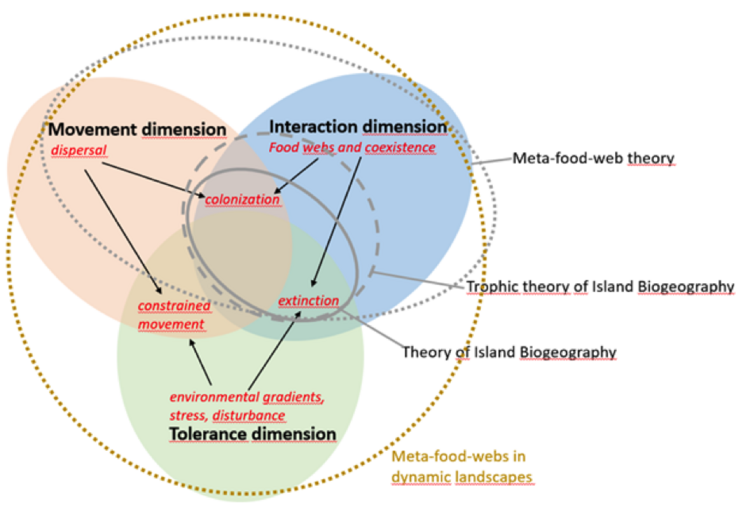Contact
Principal Investigator
Postdocs
PhD Students
Subproject 7
A trait-based theory of island biogeography
This project will develop a trait-based theory on island biogeography and meta-food-webs. It will integrate the constraints of species traits and temperature on dispersal movement into meta-food-web models. Additionally, it will address the consequences of stochastic disturbances.
In the DynaCom project's second phase SP7 merges species traits and temperature constraints on dispersal movement into novel trait-based meta-food-web models. This step strengthens theory on island biogeography and meta-communities. First, SP7 aims to forecast spatial variation in food-web structure based on spatial processes, biotic filtering, and environmental conditions. This includes integrating "constrained movement" driven by species traits, local biotic filtering during population establishment, and environmental conditions. Stress gradients and disturbances' impact on spatial food-web variability will be analyzed. Secondly, SP7 aims at extending trait-dependent dispersal models to predict biodiversity and trait patterns in island archipelagos. The analysis assesses how environmental conditions and species traits impact dispersal across spatial scales. Thirdly, SP7 will create a macro-food-web model explaining variance across local, meta, and macro scales. It considers trophic and spatial processes, climatic conditions, evolutionary constraints, and disturbances. This objective identifies factors driving variance in food-web structure across different spatial scales, connecting biogeographical processes to local habitat impacts. Together, the mechanistic insights and theoretical frameworks gained from this study are expected to improve our understanding of biodiversity in fragmented landscapes and will contribute towards a more predictive framework for understanding the effects of spatial processes on metacommunity organisation.




